Focus on foundations
Based in the San Francisco Bay Area, our nonprofit is transitioning from a previously planned year-long high school CTE course to developing an educational chatbot. This shift signifies our commitment to harnessing the power of Large Language Models (LLMs) in education. Our chatbot aims to stimulate curiosity and open-ended problem-solving across all ages, while ensuring robust and unbiased responses to complex inquiries. In this endeavor, we’re also addressing challenges related to the reliability of LLMs, AI-generated inaccuracies, and potential risks of disinformation, contributing meaningfully to the evolving landscape of artificial general intelligence.
What is science?
Enhancing education requires fostering an environment that encourages open-ended problem-solving and unpredictability, highlighting the importance of fundamental, rather than incremental, learning. Curriculums need to allow students to think independently and explore without the constraint of predetermined outcomes. The current rigid structures of advanced studies and funding should be reassessed to permit more creativity and flexibility in research. Furthermore, embracing uncertainty and confusion as integral parts of the learning process can equip students with the skills needed to navigate the complexities of discovery. By integrating these insights, we can cultivate a more flexible, curiosity-driven approach in education, potentially reigniting the spirit of groundbreaking discovery.
Our project aims to explore the potential of Large Language Models (LLMs) in education, with a particular focus on facilitating knowledge integration and fine-tuning responses. We are particularly interested in their application within the K-12 student demographic, though we anticipate value for adult learners as well.
A primary aspect of our work involves preparing AI tools to handle complex, philosophical inquiries from users such as “Why is this subject important?”, “What is the future of jobs in the age of AI?”, “What is the nature of science, and are there alternative ways of knowing?”, and “What is the meaning of life?”. Given the potential for misinterpretation or politicization in AI responses, we strive to ensure our LLMs provide well-rounded, non-partisan responses. We draw inspiration from physicist and philosopher David Deutsch’s optimistic realist worldview in our approach.
Our project also hopes to address a few technical and societal challenges. On the technical side, we’re keen to improve the reliability of LLMs and minimize instances of AI-generated inaccuracies. Societally, we aim to mitigate the risks of AI-generated disinformation, particularly in the context of future political events. We’re also mindful of the broader issues surrounding artificial general intelligence (AGI), its safety, and its regulation. However, we understand the scale of these challenges and aim to contribute modestly to these areas rather than attempt to solve them entirely.
Universal 8-bit computer from scratch
A foundational, hands-on project for learning electronics, physics, programming, and computation. Adapted for novice students from Ben Eater’s Youtube Video Series , and Alberto Malvino’s “Digital Computer Electronics”, 1976.
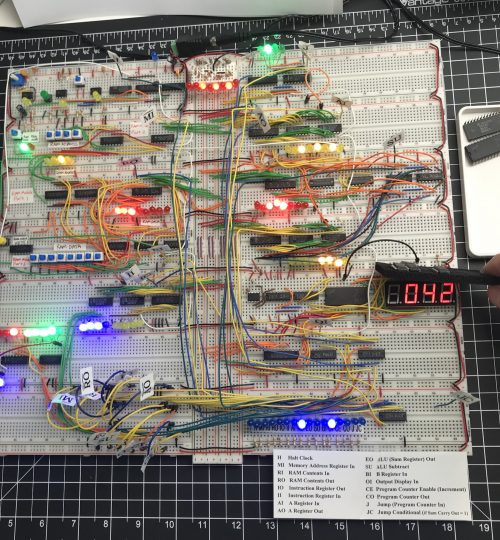
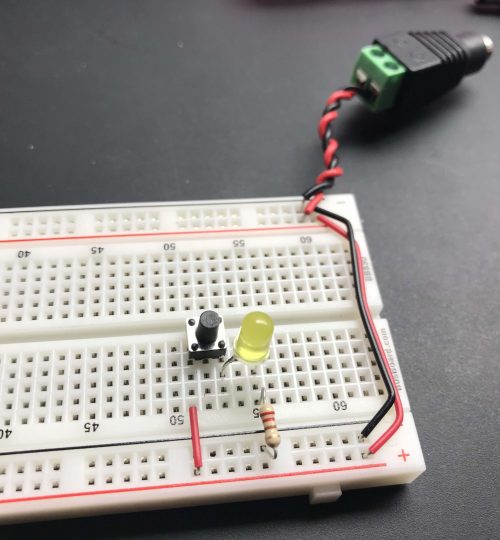

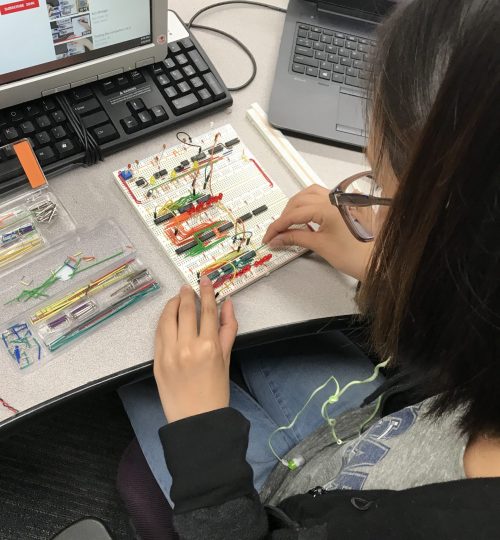
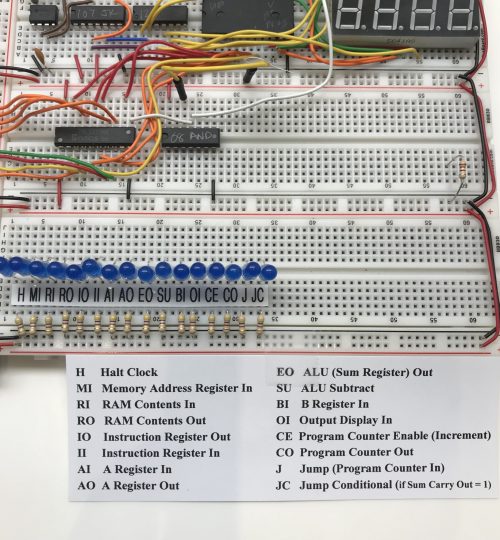
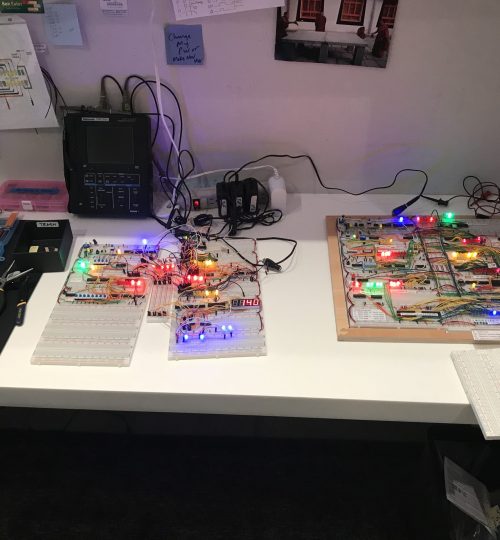

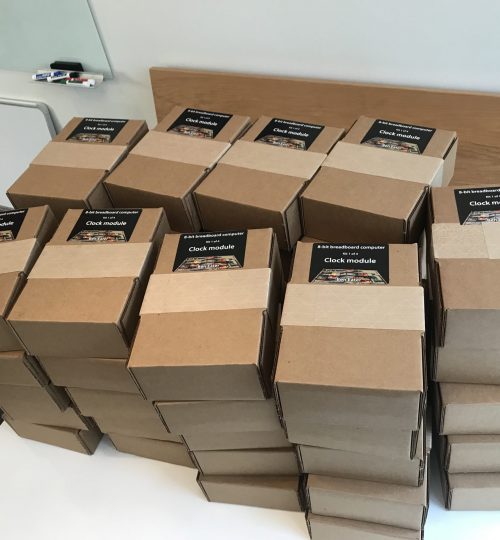
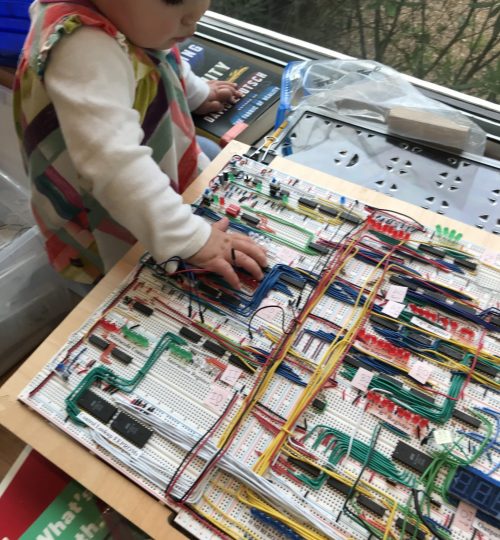
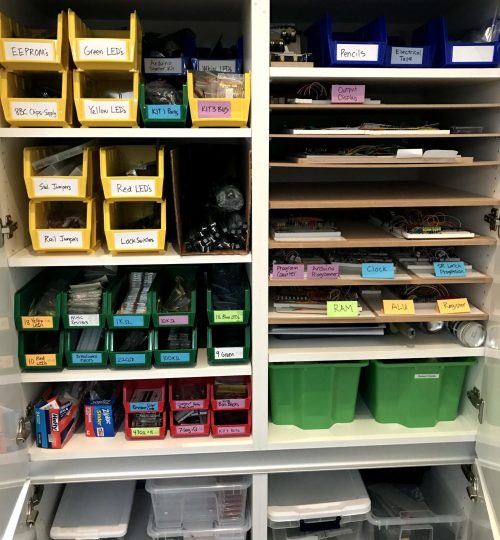
The 8-bit computer is a “simple as possible but universal” CPU from discrete logic chips on 14 breadboards. Going from simple switches to logic gates to building block circuits to functional modules, all the way to an integrated system – no steps are skipped and nothing is asked to be taken on faith. The flow of the project encompasses the progression through various levels of abstraction, finally getting to the interface between hardware and software. Students see first hand how simple operations on binary 1’s and 0’s are combined and organized into a computer with a universal instruction set. In the final module of the project, students create their own assembly level instructions, figuring out how to set the control signals to achieve them, and write their own programs to perform more complex tasks. At a practical level, building the 8-bit computer forever demystifies how computers actually work. At a deeper level, it elucidates the fundamental nature of computation. The students see how the computer that they themselves built, with their own two hands, connects the abstract world with the physical world, math with science.

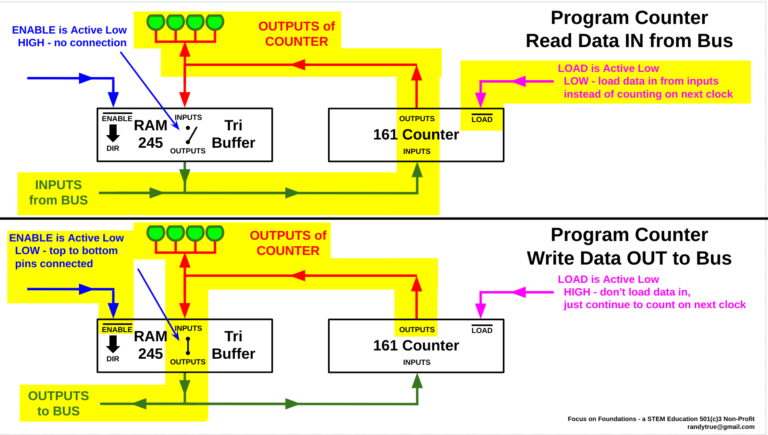
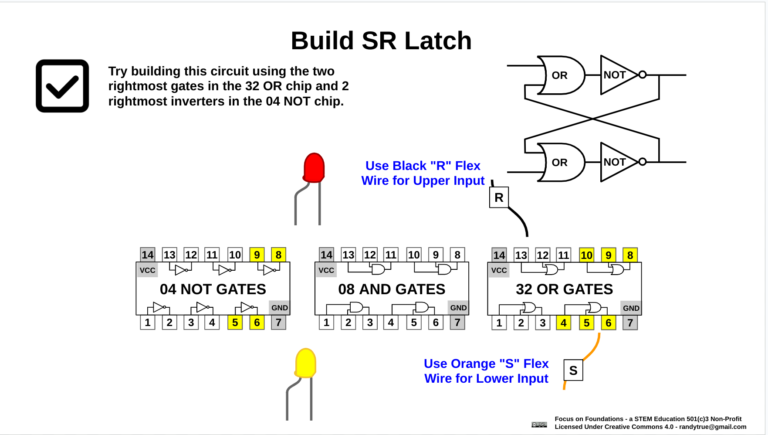
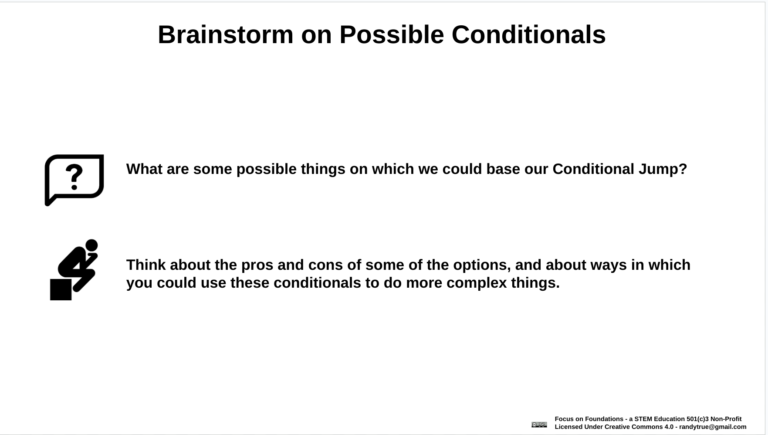
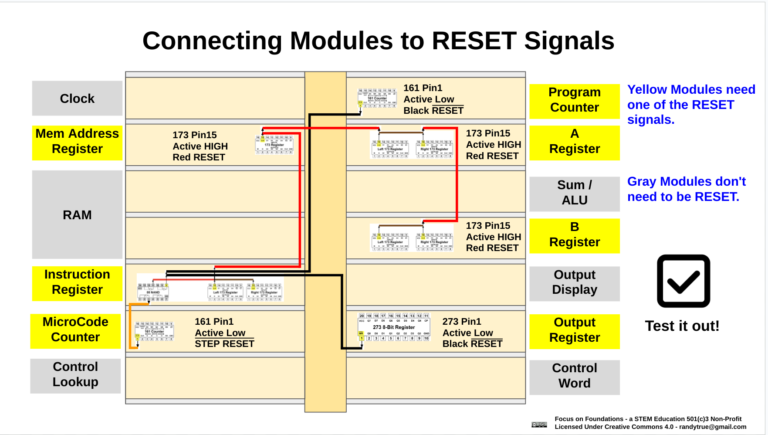

I have learned a lot from the 8-bit breadboard computer project and I have never been so excited to attend class before because of it. I have learned more concepts from the project than I have learned from all my other classes combined.
Cindy,
High School Junior at SVCTE, March 2020
Electronics & Computation CTE Course
A Career Technical Education course is currently in its early stages of development. This course, planned to offer 520 hours of integrated learning, aims to combine the practical focus of CTE with the depth of traditional core academics. It’s designed to run for 3 hours per day with the goal of earning UC A-G certification in Math, Lab Science, and History.
The curriculum is centered around the Universal 8-bit Computer Project for the first part of the course. As students progress, it will transition to self-selected individual and group projects. The course structure allows for concentrated hours and a flipped/blended learning approach in class. This is designed to support both individual and group tutoring, filling any gaps in students’ knowledge to achieve a mastery-based approach to education.
Once complete, the course is expected to equip students with skills that could open doors in the high-tech industry, in hardware or software. It’s also intended to prepare students for further studies in an engineering or science degree program at college.
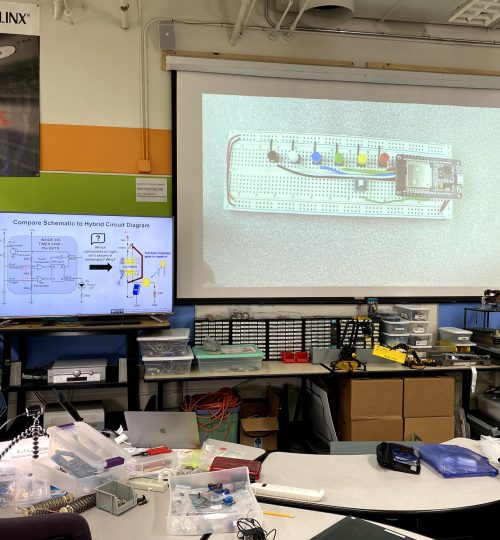
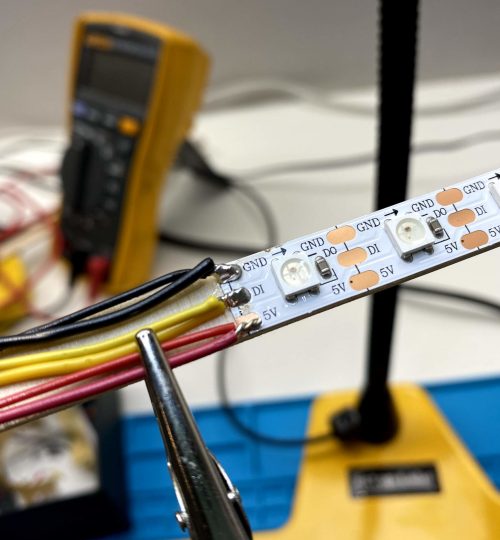
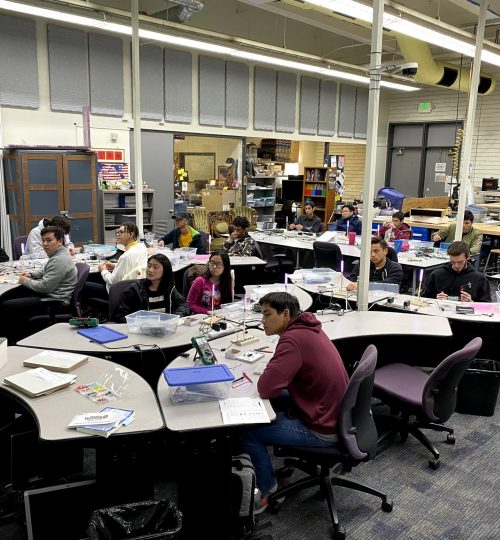
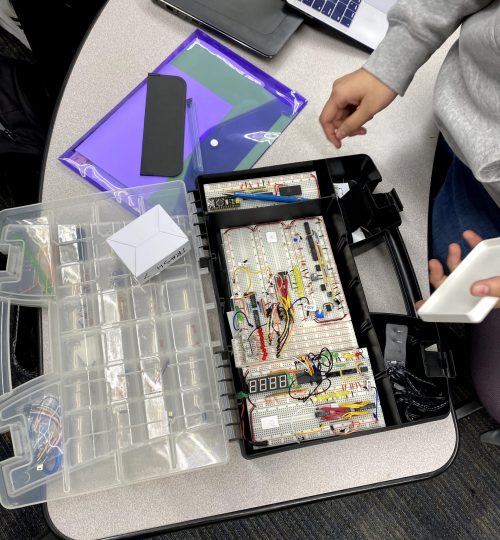
UPDATE May, 2020
In January, 2020, FoF Founder Randy True started teaching a 10 week pilot version of Universal 8-Bit Computer Curriculum at the Silicon Valley CTE campus in San Jose, in Mechatronics teacher Jim Burnham’s 2 classes. The pilot was going very well with all 14 students in the 3-hour afternoon class having completed the first 3 modules, and 20 students in the 2-hour morning class having completed the Clock module. New content was produced, in the form of videos of the updated student computer build as well as several mastery exercises of core electronics concepts. The new video count stands at 67, with many added to the EdPuzzle platform where questions can be embedded and student view progress tracked. An intensive week-long push in March culminated on the day school closed, providing the materials for all 34 students to build their 8-bit computers at home with distance learning support. The “remote” program is part of Focus on Foundations’ roadmap, with the coronavirus crisis just pulling it forward. For a framework, in addition to Ben Eater’s Youtube videos, FoF videos, and FoF slides, a Slack workspace was set up for students and teachers to collaborate. It is organized with channels for each module, and provides a searchable history for troubleshooting.
Contact
Randy True – randy@focusonfoundations.org